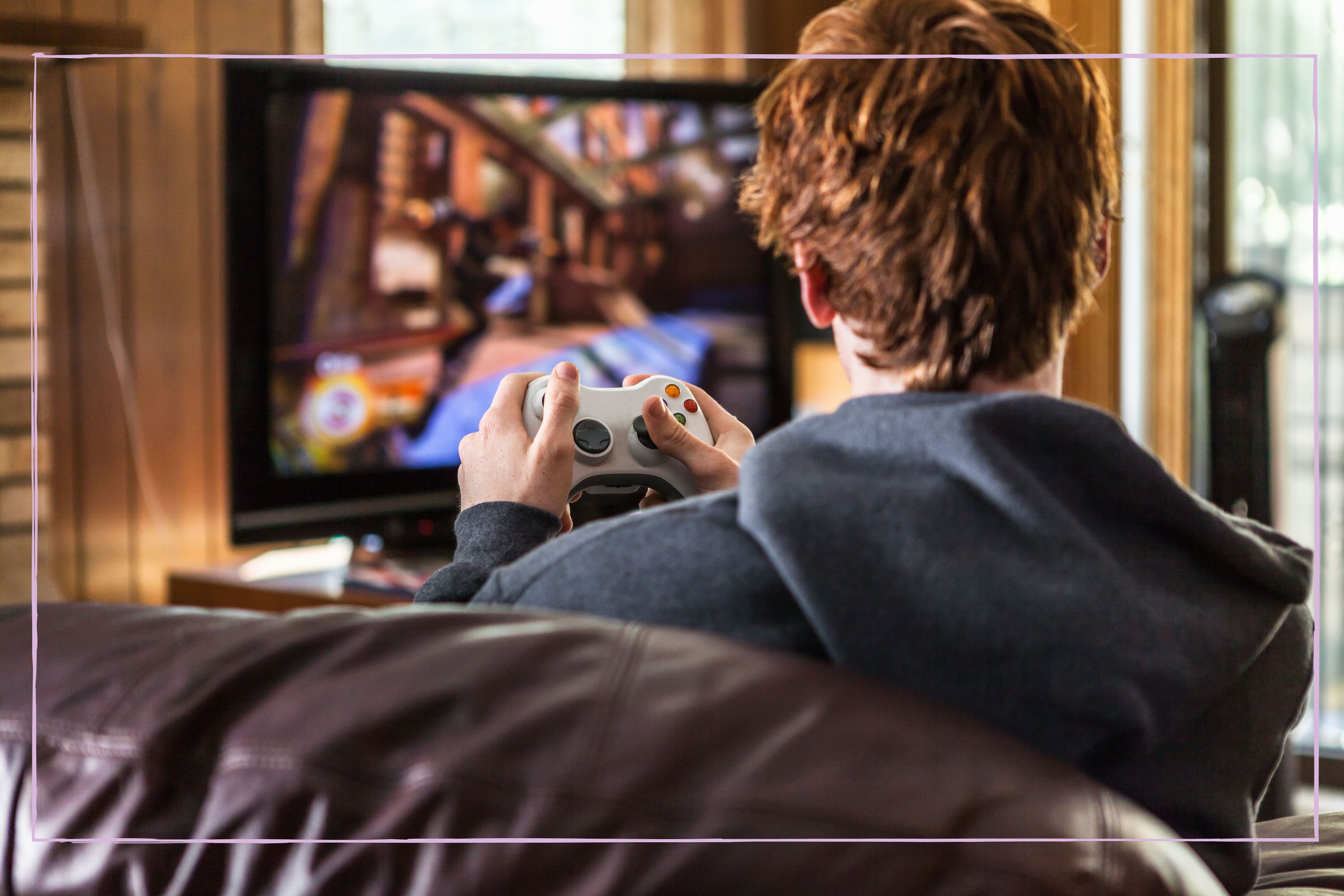
A new scientific study has found a correlation between playing video games and teen psychosis. Here's what parents need to know, as well as some of the signs of gaming addiction.
Two-thirds of parents notice negative effects of screen time on their children, and along with the news that too much time in front of a tablet is being scientifically linked to abnormal behaviour in toddlers, it's becoming a growing concern for families.
But it's not just younger children who could be suffering from too much time playing with tech. Research has found that half of teenagers admit they are addicted to social media, and now a more recent study has suggested that video games could be linked to teen psychosis.
Psychosis is defined by the NHS as losing contact with reality. It adds that "this might involve seeing or hearing things that other people cannot see or hear (hallucinations) and believing things that are not actually true (delusions). It may also involve confused (disordered) thinking and speaking."
And worrying research published in the scientific journal JAMA Psychiatry has found that teenagers who spend a lot of time playing video games and on the computer are more likely to experience such symptoms.
The researchers studied a cohort of 1,226 participants born between 1997 and 1998, who reported their weekly amount of television viewing, video gaming, computer use, and reading at ages 12, 13, 15, and 17 years. Interestingly, those who increased then decreased their computer usage were more likely to have a psychotic experience at some point before the age of 23.
Between five and seven per cent of adults had a psychotic experience at some point, with the first often occurring during teenage years. These experiences ranged from mild suspiciousness, disorganised thinking and bizarre ideas to delusions, hallucinations and paranoia.
The participants were asked questions including "Have you ever felt as if people seem to drop hints about you or say things with a double meaning?", "Have you ever felt as if the thoughts in your head are not your own?" and "Have you ever heard voices when you are alone?" to determine if they had experienced psychosis.
However, the association between playing video games and likelihood of a psychotic experience may be explained by the fact that video games are often linked with other factors that could be confounding the data.
"It is notable that higher video gaming was associated with many indicators of adversity, including household income insufficiency, as well as mental health and interpersonal difficulties at age 12 years. Elsewhere, lower socioeconomic status, male sex, and interpersonal and mental health problems have similarly been associated with higher levels of video gaming in children and adolescents," the authors of the study wrote.
The researchers went on to explain this by suggesting that, for some individuals, video gaming may aid in managing emotions and fostering social connections, while children might discover that the psychological and social aspects of gaming can help them deal with feelings of loneliness.
In addition, challenges such as economic instability, mental health issues, and interpersonal struggles may limit access to activities other than video games.
It is hoped that the research can help psychologists understand why teenagers may develop psychotic experiences and figure out how to best help them. If you have a child who spends a lot of time on video games, mental health charity Young Minds has shared some of the signs that there might be a problem:
- Your child feels regularly exhausted and disengaged
- They’re struggling to concentrate at school
- They prioritise gaming over important daily activities like sleeping, eating and washing
- They’re only socialising online and finding in-person interactions difficult to manage or enjoy
- They no longer keep up with other interests they used to enjoy
- They’re finding it difficult to think or talk about much else
If any of these behaviours sound familiar, you can try speaking to your child's school or your GP, or seek out professional help from a counsellor or therapist. You can also call the Young Minds parents help line on 0808 802 5544, or find out more about supporting children with gaming at childnet.com.
If you're looking for advice when it comes to managing your teen's screen time, parenting experts have shared Dr Becky Kennedy and Professor Emily Oster have shared three top tips. Elsewhere, we asked an expert for their tips to stop kids from doomscrolling, and we reveal six ways to ensure screens aren't keeping your teen gamer up all night.







